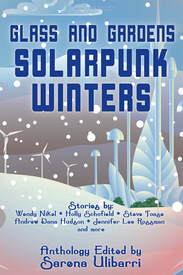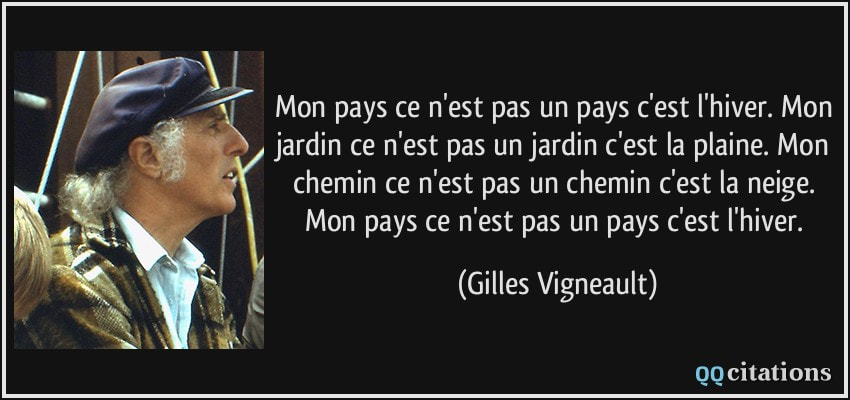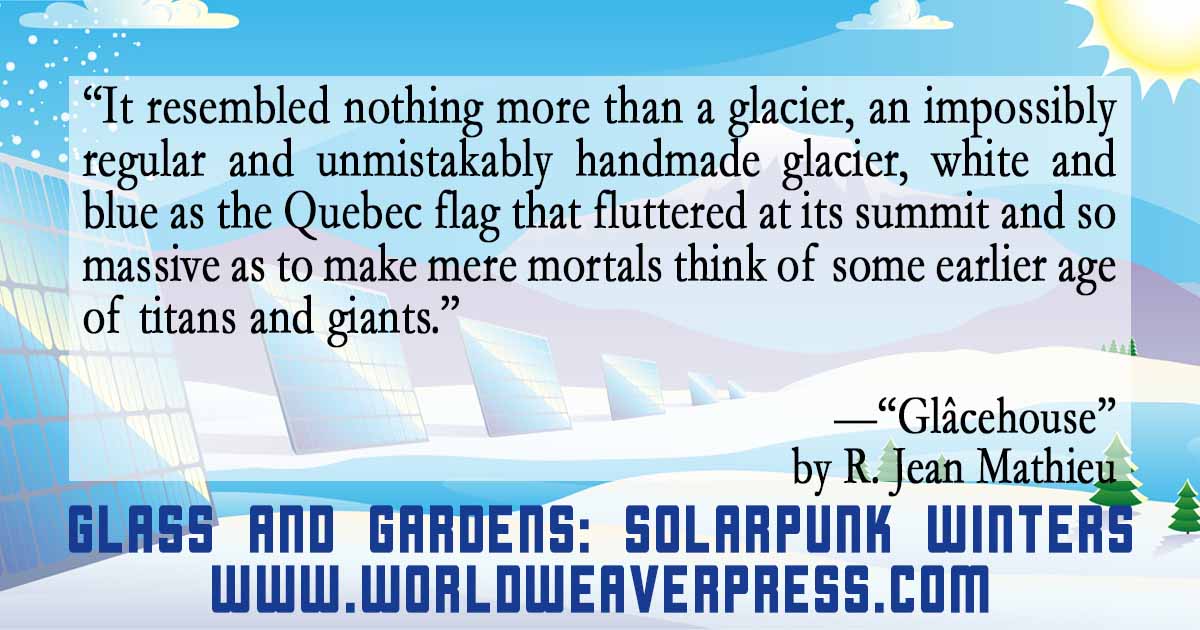 Guest Blog by R. Jean Mathieu "Mon pays, ce n'est pas un pays, c'est l'hiver" kicks off the anthem of the Quiet Revolution. My country, it is not a country, it's winter. "Je me souviens" is the national motto of the "nation within the Canadian confederation." I remember. And before it was a technical term in the social sciences, "la survivance" was our collective hunkering down to stay French and stay Catholic until le bon roi came back for us, to free us from the English. Any day now. I found out I was French when I was eight years old, on the first day of second grade, when Mrs. Gallagher told us we would be signing our given and family names. "But," I wailed, "I can't spell my last name!" Ever since, I've been living in a bilingual world, with a mother tongue and a langue paternelle. It got a shot in the arm when I went to college to learn the tongue my father forgot, and again when I first heard neo-trad, and again when I married a Francophile with a better Parisian accent than mine. And it was that bilingual world I wanted to share. Because I remember, and I wanted to remind everyone else. In "Glacehouse," Mackenzie grew up in monolingual English in an Alberta finally shorn of effete Eastern frogs, while Marie-Pier grew up black… but at least she speaks French eh mon 'sti? And with a surname about as Quebecois as, say, Hickock is American. Their rainy, muggy Montreal is still bilingual, still thanks to the Anglophone East End Jews and Chinese. Their conversation starts with "Bonjour-hi!" and ebbs and flows back and forth between the two tongues. And they can ebb back and forth… in private, and outside the glacehouse. Because Dr. Corriveau, that pure lain, has a very specific Quebec in mind. It's the old Quebec of the Grand Noirceur (the Great Darkness), where pure and happy habitants tilled their thin soil and went to mass and did not much question their English-speaking betters. The Quebec before electricity came along in the 1940s. The Quebec that was still a bastard child of two peoples, the French and the (real) Canadians, rather than a people unto themselves, the Quebecois. He would not dream of English adulterating his pure speech any more than he would dream of American mustard greens springing up beneath his hibernating sugar maples. In both cases, he would love to release his hiver out into the pays. That pays is rightfully hiver, after all. They had a third referendum to prove it. They have political independence, so why, with their weakened economy and reduced standing in a changing world, is their precious French and French way of life being driven back by the all-consuming economic force of English North America? Never mind, just keep the old, pure Quebec under glass to remember with. Right now, us cousins south of the 49th parallel are having a bit of a cultural renaissance. David Vermette's A Distinct Alien Race is the first great history of Franco-America. Résonance is our literary journal. Jesse Martineau's French-Canadian History Podcast showcases the Americans grappling with the realization that we are French. The only way to preserve le pays d'hiver is to release it out into the wild, to achieve equilibrium with the ecology that surrounds us. The only way for our families to remember our French, to remember how to spell our own names, is to become bilingual. A franco-californien armed with a wok and a word processor, R. Jean Mathieu has hauled sail, served tea, hung beef, sold cell phones, and even used his own coat as a zip-line sixteen stories above the streets of Hong Kong. He writes every flavor of fiction under a variety of noms de plume. He and his wife, Melissa, keep a good table when not writing side-by-side or chasing trains to the next adventure. You can find Mathieu’s work in Ecopunk!, Glass and Gardens: Solarpunk Winters, and Amazon.com.
0 Comments
Your comment will be posted after it is approved.
Leave a Reply. |
World Weaver PressPublishing fantasy, paranormal, and science fiction. Archives
February 2024
|
- Home
-
Books
-
All Books
>
- Beyond the Glass Slipper
- Bite Somebody
- Bite Somebody Else
- Black Pearl Dreaming
- Cassandra Complex
- Causality Loop
- Clockwork, Curses, and Coal
- Continuum
- Corvidae
- Cursed: Wickedly Fun Stories
- Dream Eater
- Equus
- Fae
- Falling of the Moon
- Far Orbit
- Far Orbit Apogee
- Fractured Days
- Frozen Fairy Tales
- Glass and Gardens: Solarpunk Summers
- Glass and Gardens: Solarpunk Winters
- Grandmother Paradox
- Grimm, Grit, and Gasoline
- Haunted Housewives
- Heir to the Lamp
- He Sees You When He's Creepin': Tales of Krampus
- Into the Moonless Night
- Jack Jetstark's Intergalactic Freakshow
- King of Ash and Bones (ebook)
- Krampusnacht
- Last Dream of Her Mortal Soul
- Meddlers of Moonshine
- Mothers of Enchantment
- Mrs Claus
- Multispecies Cities
- Murder in the Generative Kitchen
- Recognize Fascism
- Scarecrow
- Sirens
- Shards of History
- Shattered Fates
- Skull and Pestle
- Solarpunk (Translation)
- Solarpunk Creatures
- Solomon's Bell
- SonofaWitch!
- Speculative Story Bites
- Trenchcoats, Towers, and Trolls
- Weredog Whisperer
- Wolves and Witches
- Anthologies and Collections
- Novels
- Novellas
- Fairy Tale
- Fantasy
- Romance
- Science Fiction
- Urban/Contemporary Fantasy
- Young Adult SFF
-
All Books
>
- Blog
- About
- Contact
- Press / Publicity
- Newsletter Signup
- Privacy Policy
- Store



 RSS Feed
RSS Feed